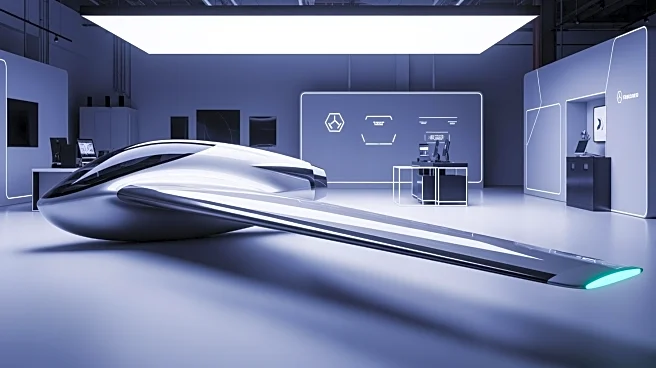What's Happening?
Bye Aerospace is revising its production strategy for its two-seat electric trainer aircraft, the eFlyer 2, as it prepares for a planned first flight in 2026. The company, previously handling composite
fabrication at its Denver facility, will now partner with an undisclosed aerospace prototyping company to manage this aspect. Bye Aerospace will focus on assembly and systems integration. CEO Rod Zastrow highlighted the economic and strategic benefits of outsourcing composite fabrication, aligning with their approach to battery and engine production. The company aims to complete airframe assembly by January and systems integration by March or April, targeting a first flight shortly thereafter.
Why It's Important?
This strategic shift by Bye Aerospace underscores a growing trend in the aerospace industry towards specialization and collaboration. By outsourcing composite fabrication, Bye Aerospace can concentrate on its core competencies of design, integration, and testing. This move could accelerate the development timeline and potentially reduce costs, making the eFlyer 2 more competitive in the burgeoning electric aircraft market. The decision to partner with MagniX for battery technology further positions Bye Aerospace to leverage cutting-edge advancements in energy density and efficiency, crucial for meeting the operational demands of electric flight.
What's Next?
Bye Aerospace plans to certify the eFlyer 2 under FAA Part 23 Amendment 64, with potential consideration for the FAA's MOSAIC rules for light-sport aircraft. The company anticipates certification and first deliveries by 2028. The success of this strategy could influence other aerospace startups to adopt similar collaborative approaches, potentially reshaping production methodologies in the industry.
Beyond the Headlines
The shift in production strategy reflects broader industry trends towards modular and collaborative manufacturing processes. This approach could lead to more rapid innovation cycles and cost efficiencies, potentially lowering barriers to entry for new aerospace ventures. Additionally, the focus on electric aircraft aligns with global sustainability goals, highlighting the industry's commitment to reducing carbon emissions.









